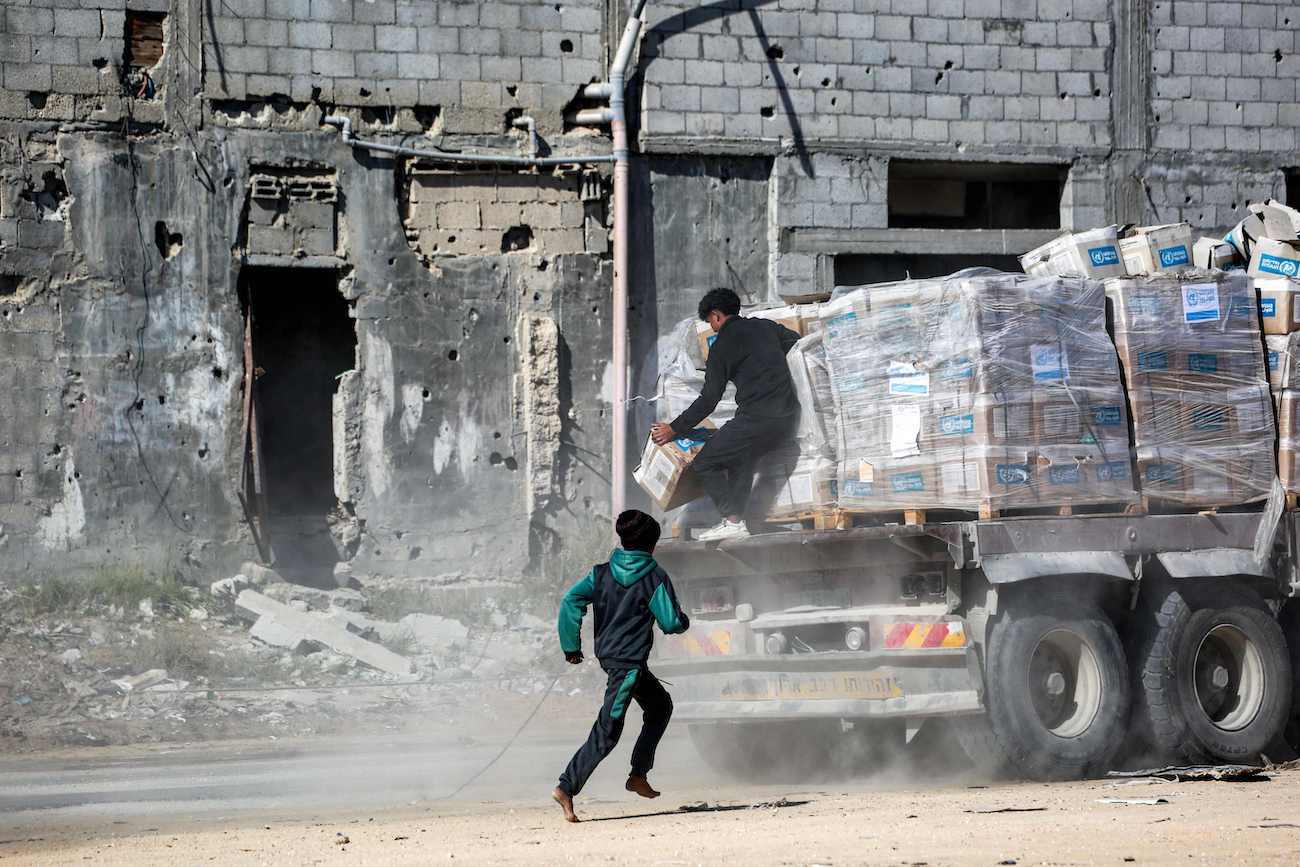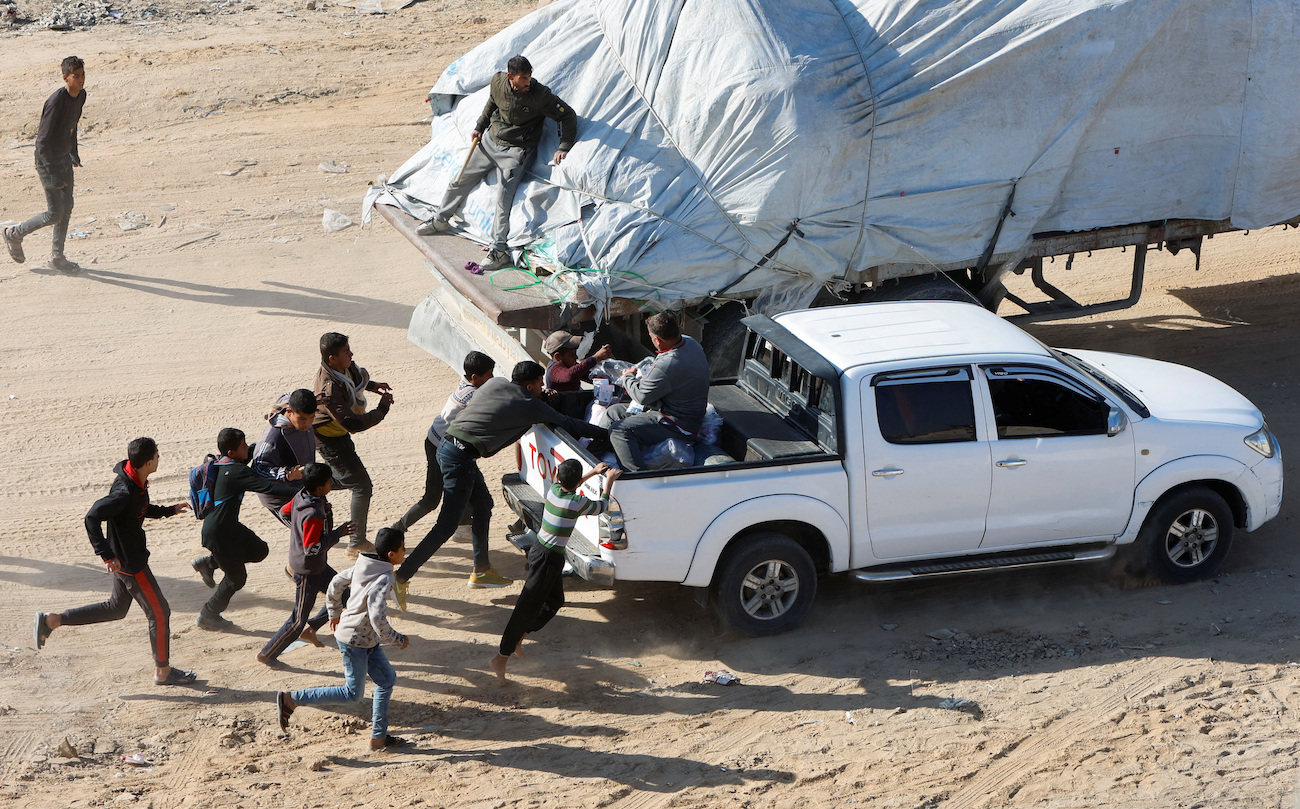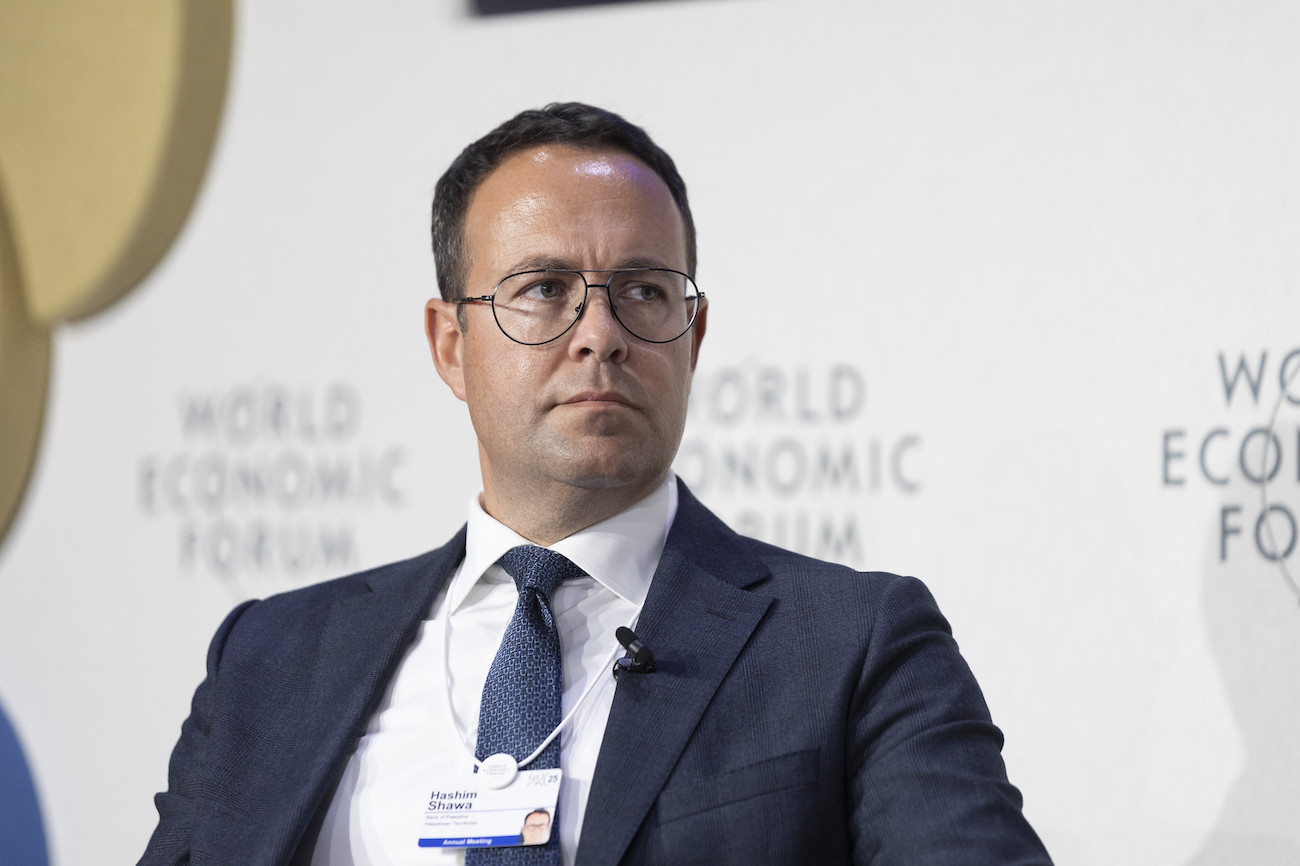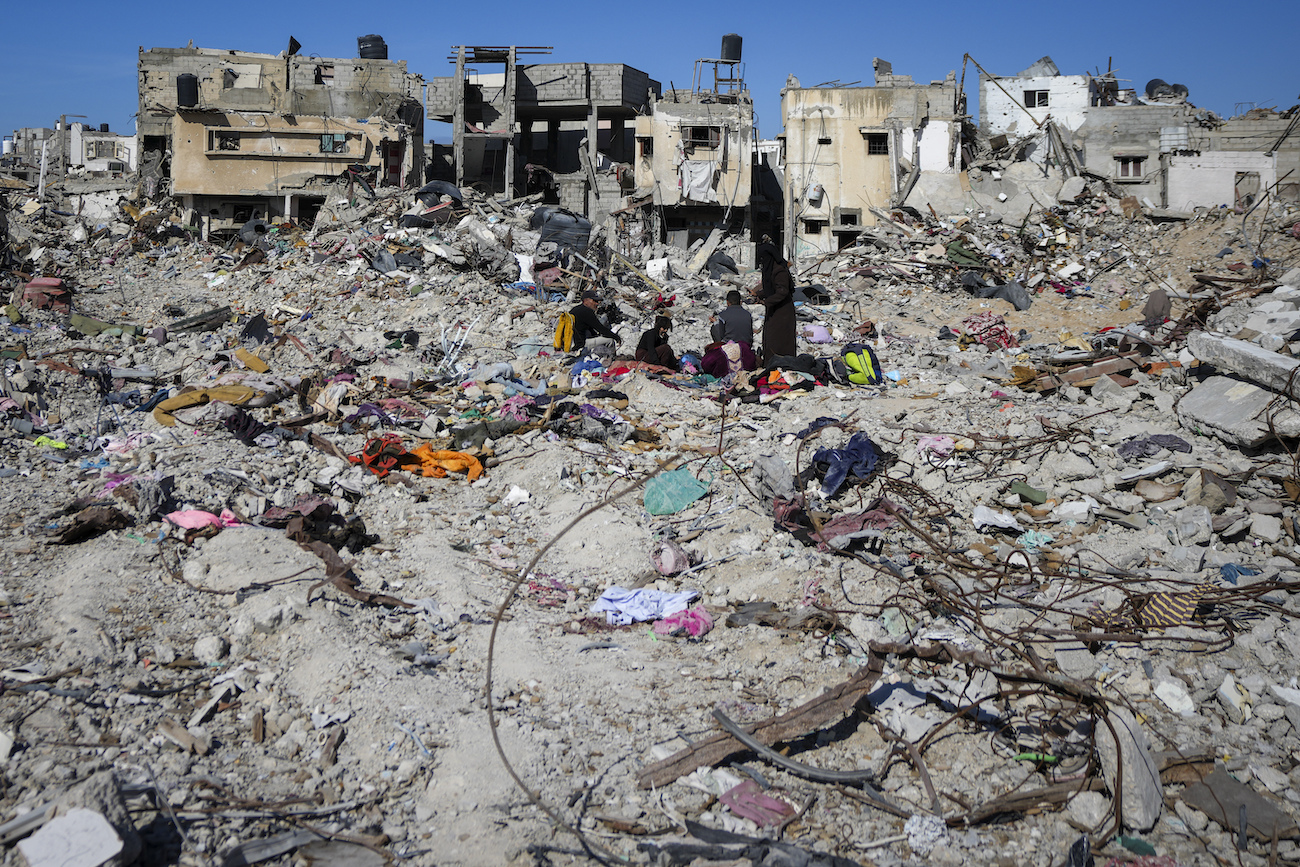DAVOS: Delivering a huge surge of aid into Gaza is a key priority for the UN’s Office for the Coordination of Humanitarian Affairs, the agency’s head said on Tuesday.
Speaking at the World Economic Forum in Davos, Tom Fletcher said that “millions are in need” in the war-torn territory and that the aid would partly support the ceasefire process.
Fletcher said: “The key priority for us on the humanitarian side now is to get a huge surge of aid into Gaza, partly to support the ceasefire process because it is dependent on this step by step, very complex approach, but more importantly because millions are in need.
“Some 600 trucks entered on Sunday, including 300 up to the north, which needs it so badly, 900 on Monday, and more today.”

A boy chases one of the trucks carrying UNRWA aid coming in from the Kerem Shalom border crossing and arriving in the southern Gaza Strip on January 21, 2025. (AFP)
He described how delivering aid had become “almost impossible in the last few weeks,” with convoys being looted and community organizers assisting the OCHA “taken out by Israeli drones.”
Fletcher said: “We lost 79 out of 80 trucks in one convoy. And then the community organizers who went in with us were then taken out by Israeli drones. So it was becoming almost impossible to deliver a fraction of what we needed to do. Now the ceasefire opens up this window and we’ve got to really show that we can deliver at that massive scale.”
However, he warned that the money would soon run out and that the UN agency needs funding and protection to deliver aid.
Fletcher said: “We’ll need the funding and the protection, which means member states have to start saying: ‘Stop shooting at UN convoys.’
“Last year was the deadliest year to be a humanitarian on record and that was mainly because of Gaza.
“We can’t deliver all these convoys alone. So we need commercial traffic getting into Gaza. And we need innovation as well. In the last 14 months, Gaza has been a laboratory of war and testing new weapons. We now need it to be a laboratory of humanitarian support. Can we use as much ingenuity and innovation in saving lives as in killing people? And that’s a real test.”

Palestinians rush to collect aid, following a ceasefire between Israel and Hamas, in Rafah in the southern Gaza Strip, January 21, 2025. (Reuters)
The OCHA chief said the UN agency was launching a big cash aid initiative on Tuesday, adding: “We’re trying to get direct cash support to a million Palestinian families, mostly headed by women, so that they get to make the choices about where they spend the money.”
Also speaking in Davos, Hashim Shawa, the chairman of the Bank of Palestine, said the institution had been working with all development partners in mobilizing cash assistance programs for decades.
He said: “We’ve been the first to innovate in the digital space. We’ve bought in international investors to help the bank not only remain resilient, but grow.
“We’ve grown 100 branches all over the West Bank and Gaza. We’re now in the UAE, in Dubai and Abu Dhabi. We got a license in Cairo. We’re expanding in Cairo, obviously. The day after this war, Egypt is going to play a strategic role in the development of Gaza.

The Chairman of the Bank of Palestine Hashim Shawa. (WEF)
“So we’ve left no stone unturned in terms of providing the international aid organizations with a trusted, well-vetted, high tech, bullet-proof platform, Bank of Palestine, to facilitate all this aid. Half a million beneficiaries a year receive much-needed cash assistance and other forms of aid through their phones, digitally.”
Also participating, Sara Pantuliano, the chief executive of ODI Global, a global affairs think tank, said that recovery and reconstruction in Gaza was not just a matter of money and infrastructure, but death and destruction.
She said that colleagues and friends working in Gaza describe it as having a “sort of moon landscape.”

Palestinians search for their belongings under the rubble of destroyed homes a day after a ceasefire deal between Israel and Hamas took effect, in Rafah, southern Gaza Strip, Monday, Jan. 20, 2025. (AP)
She said: “The UN Development Programme estimates that there are 50 million tons of rubble to be removed. And this rubble is mixed with human remains and unexploded ordnance, which means it’s incredibly difficult to deal with it.
“There is an estimate if you had 100 trucks working day in, day out, to try and remove this rubble, making sure that you dispose and bury the bodies that are mixed with the rubble, and carefully so that you don’t detonate more of this unexploded ordnance, it would take 15 years to dispose of the rubble that’s been created to date.”

Israeli President Isaac Herzog speaks during WEF annual meeting in Davos on January 21, 2025. (AFP)
Speaking elsewhere at the WEF annual meeting, Isaac Herzog, the president of Israel, admitted that his support for the establishment of a Palestinian state had changed somewhat in the wake of the Oct. 7, 2023, Hamas-led attack that triggered the Gaza war.
The future of the region “includes many ideas, because the idea of the two-state solution is something which, on record, I supported in the past, many times,” Herzog told CNN journalist Fareed Zakaria.
“But I would say that I had a wake-up call following Oct. 7. In the sense that I want to hear my neighbors say how much they object, regret, condemn, and do not accept, in any way, the terrible tragedy of the terror attack of Oct. 7 — and the fact that it cannot be the tool to get there.”
Herzog added: “One has to understand the state of mind of Israelis, to come after such a horror and a national trauma, surrounded by threats from seven different frontiers, and expect Israelis” to agree to withdraw from West Bank settlements.
That “is not realistic at all,” he said. “It doesn’t make sense to Israelis. They need to see something that makes sense in terms of their personal security and safety.”
Rather, he believes future talks with Arab nations that include “the Palestinian issue as a focal point in the discussions is something which makes more sense to me.”



























